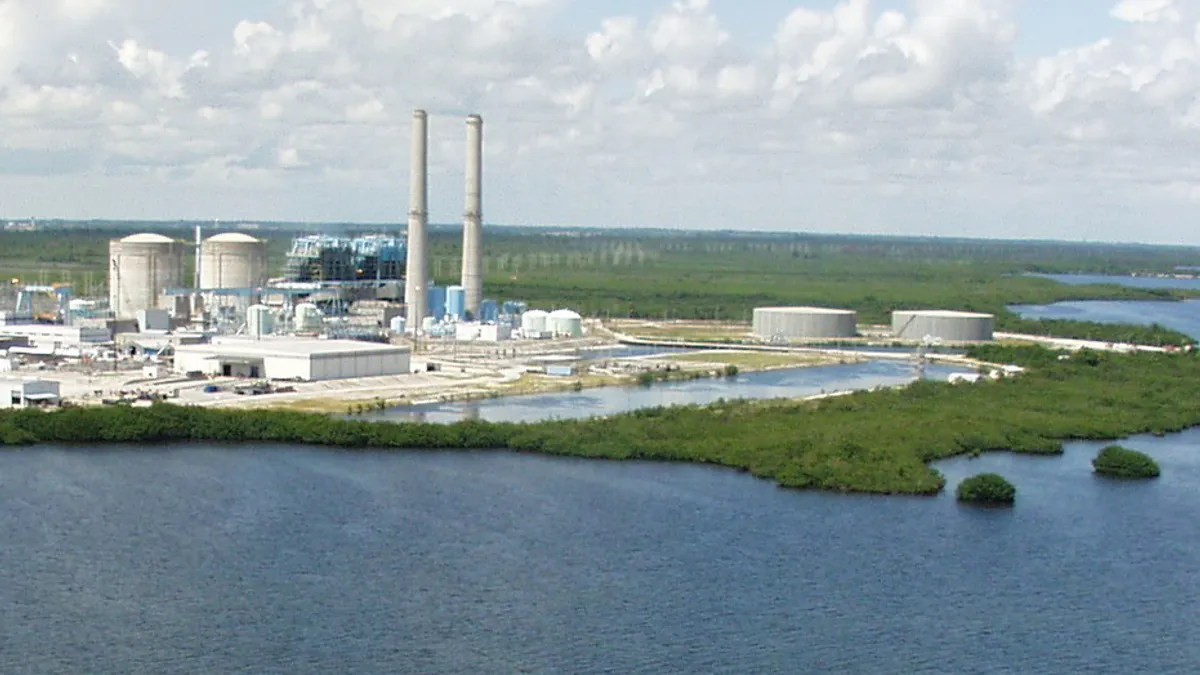Dive Brief:
- Florida Governor Rick Scott and a special panel gave their approval for Florida Power & Light’s (FPL) plan to add two 1,100-megawatt units to its Turkey Point complex.
- The proposal previously won approval from the state Public Service Commission and the state Department of Environmental Protection but cannot be built without approval from the Nuclear Regulatory Commission (NRC).
- Several cities in nearby Miami-Dade County raised objections, especially to the 90 miles of new transmission that would deliver the new Turkey Point power to the greater Miami metropolitan area.
Dive Insight:
Miami City Attorney Victoria Mendez urged Scott and the panel to deny certification, delay it until the NRC and other permitting agencies approve, modify the agreement to require underground transmission lines or remand the case to an Administrative Law Judge for further hearings.
South Miami Mayor Philip Stoddard disputed Florida Power & Light’s claims that construction would generate 8,000 jobs and save ratepayers hundreds of millions of dollars in annual fuel costs and said the transmission lines would drive retail business and housing construction away.
Florida Alliance for Consumer Protection spokesperson Brad Ashwell objected to the fact that Florida law will allow FPL to add non-refundable cost recovery charges for the new generation to ratepayers’ bills before construction is completed on “projects they may never see completed.”
According to FPL, the two units will cost between $12.8 billion and $18.7 billion and be ready for service in 2022 or 2023 but nuclear plant construction around the world regularly comes in significantly late and over-budget.














